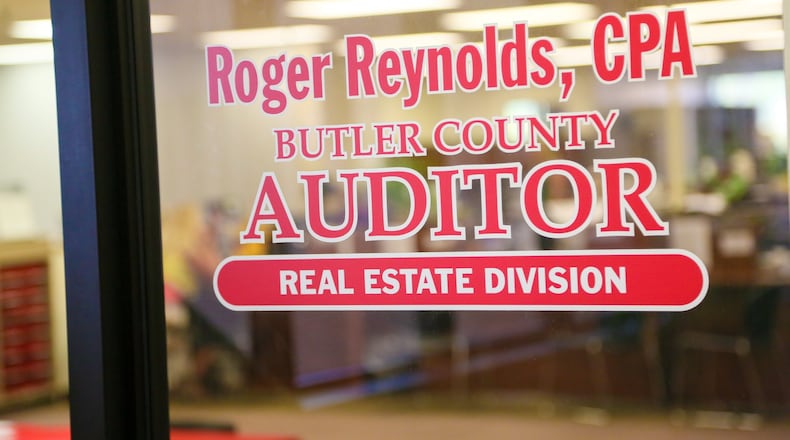“We were just finishing up finalizing values for the 2020 state required revaluation process, we’ve put that on hold, we hit the pause button,” Reynolds said “We’re going to take a couple months to see if we can tell what the impact the pandemic will be on the real estate market.”
After his office visited or photographing every property in the county, he estimated property values could rise 10 to 15 percent, depending on a given neighborhood. He has not received the state’s target increase for the county yet.
Under state law, real property in all counties is reappraised every six years, and property values are updated every third year. Butler County is among 13 required to reappraise this year. Taxes do not automatically increase due to a reappraisal, as only new levies can make that happen. New levy requests are on nearly every ballot in the county.
RELATED: Some Butler County governments cutting budgets to weather coronavirus pandemic
“The law states when the auditor increases values he must simultaneously reduce the millage on every voted levy,” Chief Deputy Auditor Dawn Mills said. “The law protects property owners and ensures the government can’t increase levy collections without the approval from the voters.”
As a result of the last triennial update, median property values in the county went up 7.1 percent, with the biggest increase in Trenton (13.3 percent), a community that was hard hit by the Great Recession. Three communities, Lemon and St. Clair townships and New Miami, didn’t change values.
Reynolds said his office may apply a tactic it used amid the Great Recession for fairness.
“The reval(uation) takes into account the previous three years of market values …. well, in 2008, the prior three years were strong, and then coming into 2008 the market started dropping rapidly,” he said. “We were forced by the state to continue on with those values. I decided in 2009, because of the large drop in the real estate market, I came back in 2009 and lowered values. We may be in that exact same situation this year.”
Taxpayers can appeal to the board of revision if they believe their property has been valued incorrectly. Mills said 4,575 people appealed in 2009, compared to 176 this year. The deadline to appeal was March 31.
Reynolds said he and other county auditors have been discussing options.
“I’m hoping this time around the state tax commissioner’s office will allow us to take into account the first half of sales of 2020 and adjust the market values accordingly,” Reynolds said. “We have options, we may request an extension into 2021 to update our values. We may request going in with smaller increases… I’m hoping that the state will simply use some common sense in adjusting those requirements.”
Gary Gundmundson, spokesman for the state tax commissioner, had no comment on Reynolds’ suggestion except to say counties can request an extension for up to one year for “good cause.”
“At this time, the tax commissioner has not granted such an extension” Gundmundson said.
With millions of people at least temporarily out of work due to social distancing requirements and stay-at-home orders nationally, the potential for unpaid taxes in the second tax collection this summer is very real. Reynolds said only about 40 percent of property owners escrow their taxes, meaning the tax are paid as part of mortgage bills.
County Treasurer Nancy Nix reported last summer the property tax delinquency rate had dropped 32 percent from the prior five-year average.
“It’s not going to be a normal collection, nor will next year’s collections be normal,” Nix said. “Yes, we had hit bottom as far as our delinquency rate and now that may swing way the other way, so we’re bracing ourselves. But I don’t think, and I’ve talked to treasurers around the state, no one really has an idea yet of how drastic it may get.”
The treasurer collected $285 million in the first tax collection this year, and $257.7 million is owed in August for tax year 2019 plus delinquencies and fines from prior years.
Townships rely heavily on property tax revenues because they don’t receive sales or income taxes.
“There’s so many moving parts in our government and in our economy, everything came to a screeching halt and none of us know exactly how it’s going to impact because it’s never happened before,” Liberty Twp. Trustee Tom Farrell said. “What we all do know is that it is going to impact us. We continue to assess this daily, hourly, trying to predict the impact but there are just so many moving parts it’s way too early to tell.”
About the Author
